
Rundetaarn
Copenhagen's Rundetaarn, also known as the Round Tower, is home to the oldest functioning observatory in Europe, a telescope from 1929, and the best lookout point in the city.
Rundetaarn, also commonly known as the Round Tower in Copenhagen, was constructed in 1642 by order of King Christian IV. Today, it stands as one of the city's most intriguing structures. Originally designed as Copenhagen's first observatory, the Rundetaarn observatory remains the oldest in all of Europe today.
For centuries, the Round Tower was Denmark's epicenter for astronomical exploration. Within the tower, visitors can see a telescope from 1929 and constellation maps as they were during that time period. Climbing the tower also promises a 17th-century planetarium at the top, featuring the Sun as the center of the universe.
Climbing the Round Tower
The defining characteristic of Copenhagen's Round Tower is its spiral ramp. This design was no mere coincidence and can be seen in other famous structures like the Giralda in Seville. The ramp's original purpose was so King Christian IV could reach the observatory via horseback.
After 7.5 short rounds up the spiral ramp, visitors arrive at the Round Tower lookout point, which is 114 feet (34.8 meters) high. At the summit, visitors can expect a breathtaking panoramic view of the city's skyline.
Among other attractions when visiting the Round Tower of Copenhagen are the former library (now converted into an exhibition hall), the attic of the bells, and a glass platform where you can look out over the 82-foot (25-meter) drop.
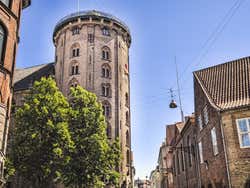
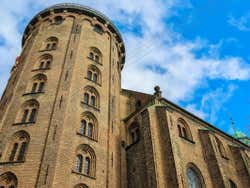
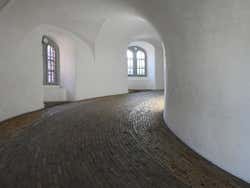
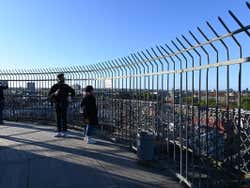
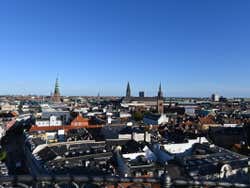
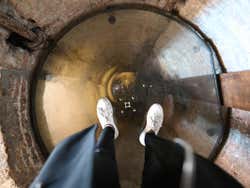
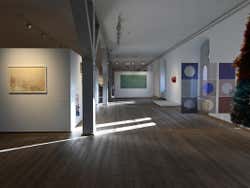
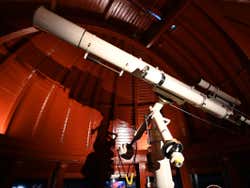
Schedule
From April to September:
Every day from 10:00 a.m. to 8:00 p.m.
Rest of the year:
Every day from 10:00 a.m. to 6:00 p.m. (Tuesdays and Wednesdays until 9:00 p.m.).
Closed December 24 and 25 and January 1.
Price
Adults: 60 kr (US$ 9.52)
Students: 30 kr (US$ 4.76)
Children 0-17: free admission.
Nearby places
Rosenborg Castle in Copenhagen (551 m) The King's Garden in Copenhagen (566 m) Copenhagen's Thorvaldsen Museum (598 m) Guiness World Records Museum in Copenhagen (627 m) Christiansborg Palace (670 m)

